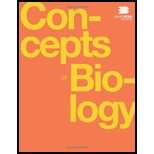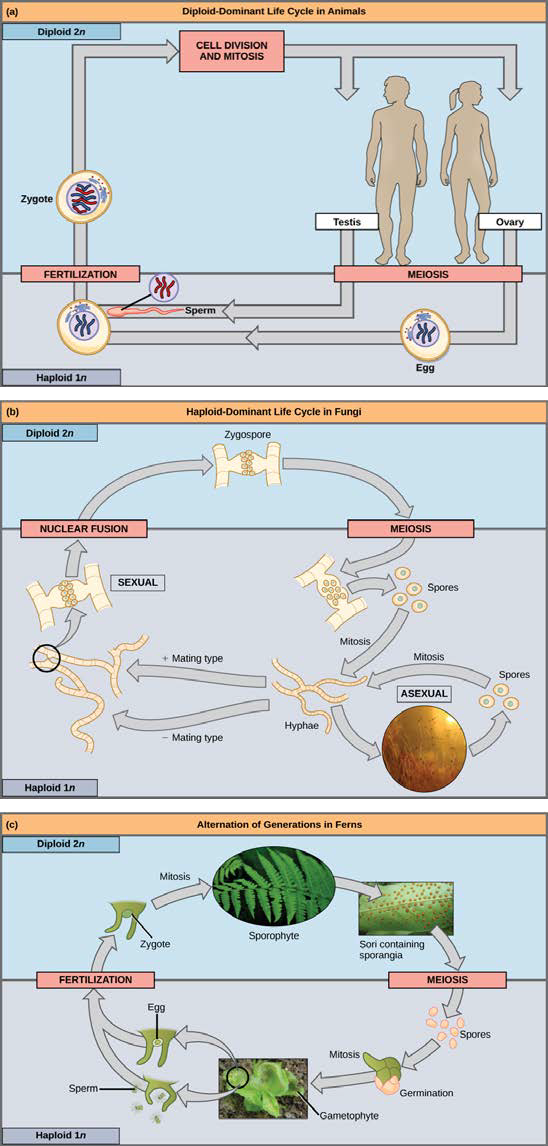
Figure 7.2 If a mutation occurs so that a

Figure 7.2 (a) In animals, sexually reproducing adults form haploid gametes from diploid germ cells. (b) Fungi, such as black bread mold (Rhizopus nigricans), have haploid-dominant life cycles. (c) Plants have a life cycle that alternates between a multicellular haploid organism and a multicellular diploid organism. (credit c “fern”: modification of work by Cory Zanker; credit c “gametophyte”: modification of work by “Vlmastra”/Wikimedia Commons)
To analyze:
If a fungus can still reproduce in case the fungus undergoes mutation and is unable to produce a minus mating type.
Introduction:
Fungi can reproduce both sexually and asexually. Sexual reproduction can occur by fusion of two gametes that can be similar in size (isogamous), or dissimilar (anisogamous). Asexual reproduction occurs by fragmentation or asexual spore formation such as zoospores.
Explanation of Solution
Yes, a fungus that is unable to produce minus mating type will be able to reproduce. Reproduction in the fungus can also occur asexually by fragmentation of its hyphae to produce a daughter fungus or asexual spores.
The fungus that is unable to multiply sexually can still reproduce asexually by spore formation and fragmentation.
Want to see more full solutions like this?
Chapter 7 Solutions
Concepts of Biology
Additional Science Textbook Solutions
College Physics
Human Biology: Concepts and Current Issues
Human Anatomy & Physiology (2nd Edition)
Genetic Analysis: An Integrated Approach (2nd Edition)
Human Physiology: An Integrated Approach (7th Edition)
Fundamentals of Anatomy & Physiology (11th Edition)
- Figure 11.9 If a mutation occurs so that a fungus is no longer able to produce a minus mating type, will it still be able to reproduce?arrow_forwardIn the following diagram, designate each daughter cell as diploid (2n) or haploid (n).arrow_forwardChewbacca from Starwars is a part of a species that has 64 chromosomes for its diploid number. What would it haploid number be?arrow_forward
- Each sperm of a tomato plant contains seven chromosomes. What are the haploid and diploid number for tomatoes? haploid=7 and diploid=14 haploid=14 and diploid=7 haploid=7 and diploid=49 haploid=3 and diploid=7arrow_forwardIf both chromatids in meiosis II move to the same pole in one of the two dividing cells, what will be the “ploidy” of the gametes? A. All four gametes will have n chromosomes. B. Two gametes will have n chromosomes, one will have n+1 chromosomes, and one will have n-1 chromosomes. C. Two gametes will have n+1 chromosomes, and two will have n-1 chromosomes. D. All four gametes will have 2n chromosomes.arrow_forwardHumans produce skin cells by mitosis and gametes by meiosis. Which of the following statements about the nuclei of skin cells is correct? a. They contain half as much DNA as the nuclei of gametes produced by meiosis. b. They contain four times as much DNA as the nuclei of gametes produced by meiosis. c. They contain the same amount of DNA as the nuclei of gametes produced by meiosis. d. They contain twice as much DNA as the nuclei of gametes produced by meiosis.arrow_forward
- If red vizcacha rats (Tympanoctomys barrerae) have 100 autosomes and 2 sex chromosomes in each of their diploid somatic cells, then they must have: only 102 chromosomes in their haploid germ cells only 100 chromosomes in their haploid germ cells only 52 chromosomes in their haploid germ cells only 51 chromosomes in their haploid germ cells only 50 chromosomes in their haploid germ cellsarrow_forwardwhy females only produce one Haploid cell and the difference between the haploid cell and the second polar bodies?arrow_forwardSome organisms—for example, certain fungi—reproduce asexually when the environment is favorable and sexually when the environment becomesunfavorable. What might be the evolutionary advantage of sexual reproduction with the associated process of meiosis during unfavorable conditions?arrow_forward
- . In plants, which of the following are produced by meiosis?(A) haploid gametes(B) diploid gametes(C) haploid spores(D) diploid sporesarrow_forwardEven though the processes are very similar, mitosis and meiosis are two very distinct processes. What is the difference between meiosis and mitosis? a. Mitosis results in two identical sister cells genetically identical to the original parent cell, while meiosis also starts with diploid but results in haploid cells. b. Mitosis only occurs in plants and single cell organisms, while meiosis only occurs in animals. c. Mitosis starts with diploid but results in haploid cells, while meiosis results in two identical sister cells genetically identical to the original parent cell.arrow_forwardThe following diagram represents a tetrad in prophase I. Each line (1–4) represents a chromatid (DNA molecule). Each letter represents a gene. For the three genes shown, indicate the alleles that will be found on Chromatids 2 and 3, respectively, if no crossing over occurs between the genes. Select one: a. Abc and aBC b. aBC and Abc c. aBc and AbC d. ABC and abcarrow_forward
 Biology 2eBiologyISBN:9781947172517Author:Matthew Douglas, Jung Choi, Mary Ann ClarkPublisher:OpenStax
Biology 2eBiologyISBN:9781947172517Author:Matthew Douglas, Jung Choi, Mary Ann ClarkPublisher:OpenStax Biology: The Dynamic Science (MindTap Course List)BiologyISBN:9781305389892Author:Peter J. Russell, Paul E. Hertz, Beverly McMillanPublisher:Cengage Learning
Biology: The Dynamic Science (MindTap Course List)BiologyISBN:9781305389892Author:Peter J. Russell, Paul E. Hertz, Beverly McMillanPublisher:Cengage Learning Biology (MindTap Course List)BiologyISBN:9781337392938Author:Eldra Solomon, Charles Martin, Diana W. Martin, Linda R. BergPublisher:Cengage Learning
Biology (MindTap Course List)BiologyISBN:9781337392938Author:Eldra Solomon, Charles Martin, Diana W. Martin, Linda R. BergPublisher:Cengage Learning Human Heredity: Principles and Issues (MindTap Co...BiologyISBN:9781305251052Author:Michael CummingsPublisher:Cengage Learning
Human Heredity: Principles and Issues (MindTap Co...BiologyISBN:9781305251052Author:Michael CummingsPublisher:Cengage Learning



